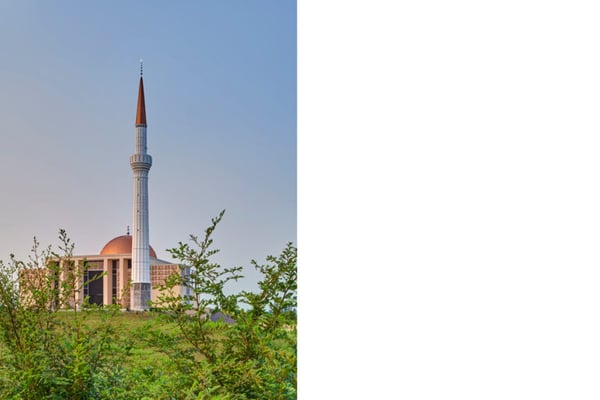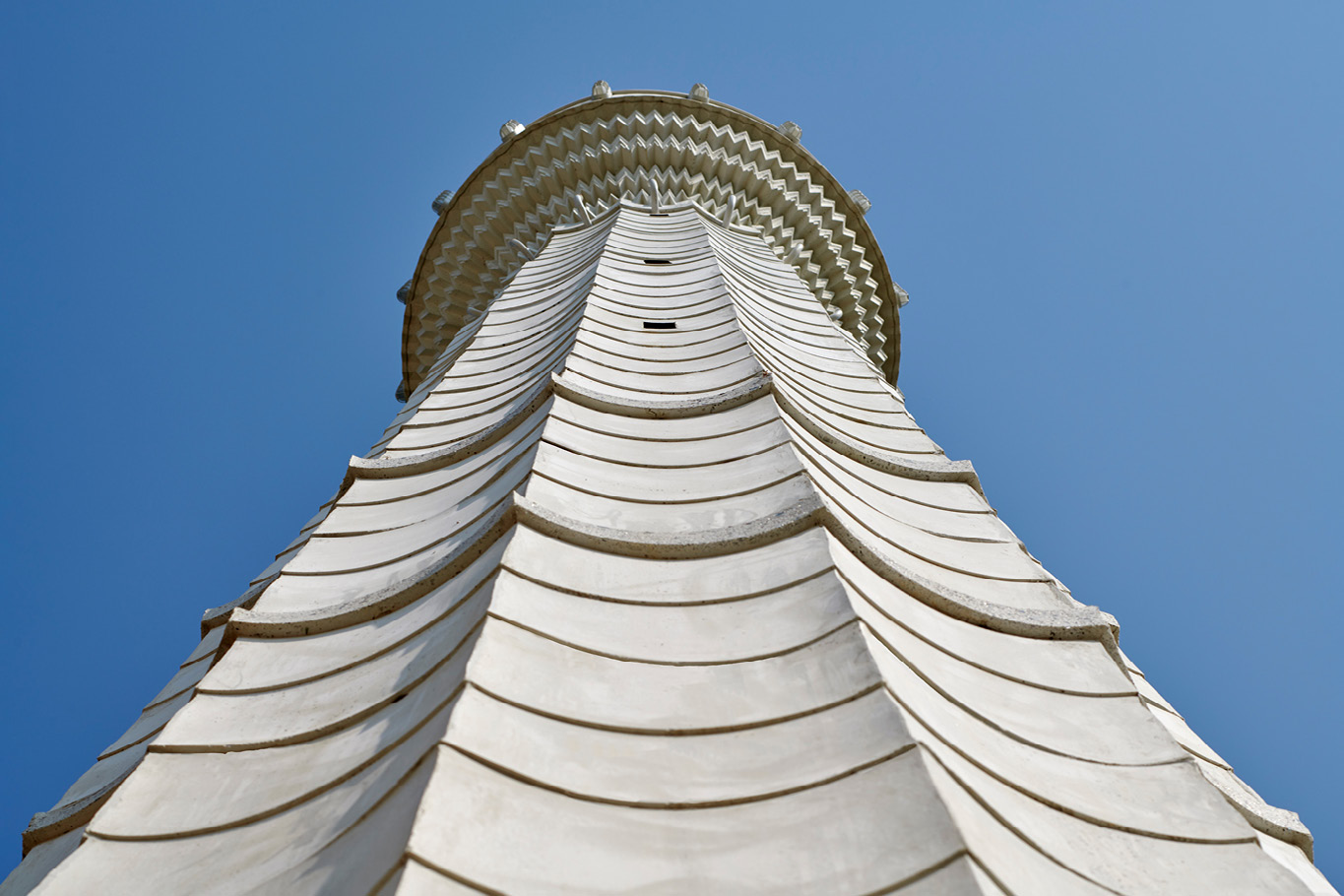As the sun rises near Granger, Iowa, the shimmering dome of the newly constructed Bosnjak Es-Selam Mosque crests the horizon. Iowa’s cornfields may not be the first place one would expect to find a 9,000-square-foot mosque and its 130-foot-tall minaret, one of the tallest in the country. Then again, Iowa is full of surprises.
The mosque stands as a testament to the resilience of Des Moines’ thriving Bosnian community. As civil war overtook their home country, thousands of Bosnians sought refuge in the United States, and many eventually made their way to Iowa. Nearing completion, the Bosnjak Es-Salem Mosque will become the spiritual and cultural home of Des Moines’ Bosnian community, a place where they can worship, connect, and celebrate their heritage.
Islamic and Cultural Center Bosniak of Des Moines
In 1994, Elvedin Sivac left war-torn Yugoslavia and came to Des Moines. At 21 years old, he was one of 107,000 Bosnians who immigrated to the US in the 1990s, according to State Department estimates. For Sivac, the Midwestern US was a culture shock. Away from his family and struggling with the language barrier, he felt homesick and out of place. After meeting his future wife, however, he decided to stay.
Like Sivac, many Bosnian refugees in Des Moines found themselves missing the religious and cultural practices that once infused their lives. With his wife, Sivac connected fellow refugees by founding the Islamic and Cultural Center Bosniak of Des Moines in 2004. The non-profit is under the umbrella of the Islamic Community of Bosniaks in North America (ICNAB), which represents over 50 mosques and Islamic Centers in the US and Canada. After their founding, the group began worshipping in a commercial space in Des Moines.
Creating a Master Plan
In 2008, the group acquired a 200-acre plot near Granger and built a cemetery and funeral home. Surrounded by rolling farmland, it was the ideal location to build a permanent place of worship. By 2017, the group had outgrown their current facility and decided to undertake the project. Working with Neumann Monson, they developed a master plan for their site, which included the location of the mosque, as well as locations for future projects like a community center, a soccer field, and housing. In designing the master plan, we placed a Sebil, a small public fountain traditional to Islamic communities, on-axis to the property’s main access point. The mosque was placed off-axis at the terrain’s highest point and orientated 44-degrees northeast toward Mecca.

Designing the Mosque and Minaret
The design team developed solutions that merged traditional Islamic architecture with a modern, distinctively Iowan sensibility. To facilitate fundraising, the design team presented schematic concepts to the entire congregation and listened to feedback. Each design element symbolically connects to the community. On the exterior, the five spaces between the four columns represent the five daily prayers of the Islamic faith. On the interior, the dome’s hexagonal, honeycomb-like pattern references the bee colonies raised on-site. Members of the congregation laid the concrete masonry units that form the building’s walls, deepening the community’s connection to the project.
The mosque’s most striking feature, the 130-foot-tall minaret, was the last exterior portion of the project to see completion. Minarets are used to call out announcements and daily calls to prayer. Master craftsman Sefet Taboković built the minaret with only a single apprentice for assistance.
At Neumann Monson, we established the minaret’s proportions and worked with a structural engineer to create its base. Although we provided some aesthetic guidelines, Taboković worked largely on his own by fabricating intricate metal molds that shape the concrete casting. Throughout the minaret’s 16-month construction, Taboković lived on-site, and members of the Cultural Center provided housing, meals, and necessities—fostering a true sense of community.
Home in the Heartland
The Bosnjak Es-Salem Mosque is the first purpose-built mosque in the Des Moines region, providing a much-needed spiritual home for the Bosnian community and other local Muslims. Future buildings on the site will broaden the Islamic and Cultural Center Bosniak of Des Moines’ educational and cultural offerings. Now settling into the Iowan plains, the mosque represents the perseverance of the Bosnian community. Nearly 30 years after many Bosnians fled their home country, they have created a permanent home in America’s heartland.
